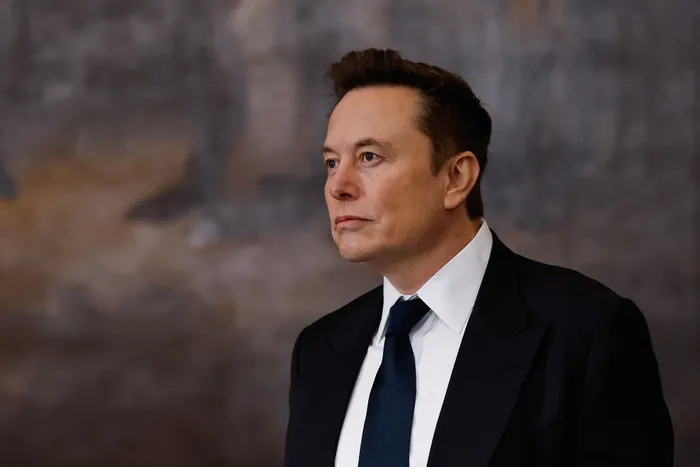Musk's Starlink has not applied to operate in SA

The Independent Communications Authority of South Africa (Icasa) it has not received an application from Elon Musk's Starlink internet service to operate in South Africa.
Image: AFP
THE Independent Communications Authority of South Africa (Icasa) has not received an application or any formal communication regarding the launch of Starlink internet service to operate in South Africa.
This comes as after reports indicating that the government was preparing to offer billionaire Elon Musk a special exemption from the country’s black ownership requirement to allow his satellite internet service to operate within its borders.
The proposal was expected to be presented during last night's meeting between President Cyril Ramaphosa and US President Donald Trump.
Ramaphosa and his delegation arrived in Washington, D.C, on Monday for a visit aimed at improving strained relations with the US.
The deal is said to be an attempt to defuse the wave of criticism from Musk and Trump, who have been spreading misinformation alleging a genocide against white people in South Africa.
The talks on launching Starlink in South Africa stalled earlier this year after Musk and Trump ramped up public rhetoric against policies such as the Black Economic Empowerment (BEE) laws.
Musk claimed that Starlink was barred from operating in South Africa because he is not black and accused the government of having “openly racist ownership laws”.
The BEE laws require foreign-owned telecommunications licenses to sell 30% of the equity in their local subsidiaries to historically disadvantaged groups.
Starlink was stopped from distributing its product in South Africa as it does not hold any license issued by Icasa to provide electronic communications, electronic communications network, or broadcasting services in South Africa in 2023.
This effectively severed public access to the satellite service.
The communications authority further requested that the company adhere to the licensing requirements set out in the legislative and regulatory framework, to ensure that services are provided efficiently, fairly, and in the best interest of stakeholders in the information and Communication Technology (ICT) sector, including consumers and licensees.
Icasa spokesperson Milly Matlou said on Wednesday that the communications authority still has not received an application from Starlink.
Starlink is already active in 18 African countries, including neighbouring Namibia, Mozambique, and Botswana.
Meanwhile, the EFF and the African Transformation Movement (ATM) condemned talks that the government in the process of bending the rules for Musk's company.
The EFF also said it would oppose it in Parliament and on the streets, adding that Ramaphosa’s move is unconstitutional and that it shows the president was willing to compromise the country’s sovereignty to “massage the inflated ego of Musk and Trump”.
On the other side, the ATM said it was not against the investment, but any deal must respect South Africa’s sovereignty and put the people first.
Should Starlink be allowed to operate in South Africa, it could send a powerful signal across the continent. Most African telecom operators don’t have a head of state to negotiate on their behalf.
But if South Africa, long seen as one of the tougher markets to crack, begins to bend its rules under diplomatic pressure, it shows just how far the US government is willing to go to support Starlink’s expansion.
That could be a game changer for regulators elsewhere, shifting how they weigh compliance, competition, and geopolitics in a suddenly satellite-friendly era, the ATM added.
Cape Times
Related Topics: